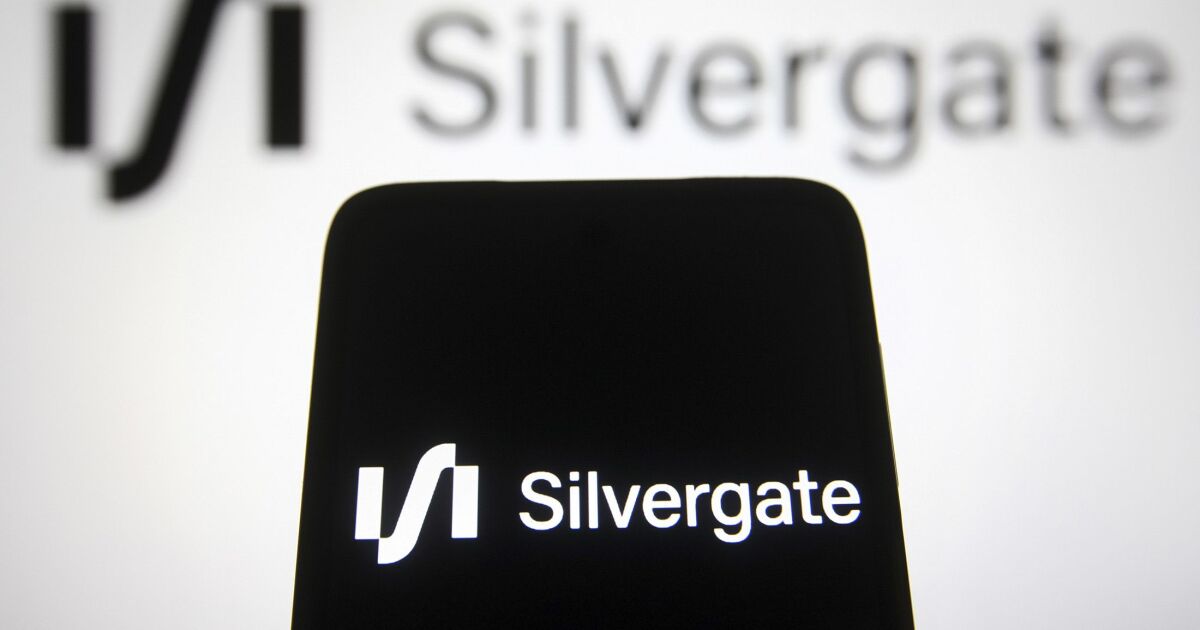
The Federal Home Loan Bank of San Francisco said Thursday that it expects to be repaid billions that it lent to Silvergate Capital Corp., even though the California bank is questioning whether it can stay in business and continue as a "going concern."
The inconsistency of the statements is sowing confusion and uncertainty about whether the crypto-friendly Silvergate, based in La Jolla, Calif., will be able to repay the $4.3 billion it received in the fourth quarter from the Federal Home Loan Bank of San Francisco, or whether it is at risk of bankruptcy or liquidation. The Federal Reserve and Federal Deposit Insurance Corp. declined to comment for this story.
One critical aspect of Federal Home Loan Bank advances is that if a recipient fails, the Home Loan bank can assert its super-lien priority ahead of regulators, including the Federal Reserve and the FDIC.
"As reported by Silvergate Bank on March 1, 2023, it made a determination to repay all advances outstanding to FHLBank San Francisco in full," the Home Loan Bank of San Francisco bank said in a statement obtained by American Banker. "All advances were at all times fully collateralized while they were outstanding."
The San Francisco Home Loan Bank confirmed the statement but declined to comment further for this story.
Silvergate's stock nosedived after it said in a securities filing late Wednesday that it would delay filing financial statements and may not continue "as a going concern" — a piece of legal euphemism for potential failure. Silvergate said additional losses will negatively impact its ability to repay the San Francisco bank.
The California bank stated that "a number of circumstances" had negatively impacted the timing of its unaudited financial results "including the sale of additional investment securities beyond what was previously anticipated and disclosed…primarily to repay in full the company's outstanding advances from the Federal Home Loan Bank of San Francisco."
Silvergate said that it expects to record further losses from the sale of additional debt securities in January and February. The company said it is "currently in the process of reevaluating its businesses and strategies in light of the business and regulatory challenges it currently faces."
"These additional losses will negatively impact the regulatory capital ratios of the Company and the Company's wholly owned subsidiary, Silvergate Bank, and could result in the Company and the Bank being less than well-capitalized," Silvergate said.
Silvergate used the liquidity provided by the San Francisco Home Loan Bank in the fourth quarter to stave off a further run on deposits. The funding provided to Silvergate, known as advances, has been criticized as one way in which the crypto industry managed to find its way into the mainstream banking system.
The Home Loan Bank System is in the midst of a regulatory review by its regulator, the Federal Housing Finance Agency, which is determining whether the system is focused on its mission of supporting housing finance. The liquidity provided to Silvergate also has raised questions about whether the Home Loan Bank System should be serving a role reserved for banking regulators.
"How did the Home Loan banks become the lender of last resort?" asked William M. Isaac, a former FDIC chairman who is now chairman of Secura/Isaac Group.
If Silvergate goes bust, the FDIC would serve as receiver and would try to sell the bank to another bank or liquidate its assets. Either way, the FDIC would have to repay the advances to the San Francisco Home Loan Bank, as well as prepayment penalties and interest. The FDIC would then take back the collateral pledged by Silvergate and use the proceeds to pay off insured depositors, experts said
"Why are we giving an entity like the Federal Home Loan bank, which is not a government agency, priority over FDIC claims?" Isaac asked.
At the heart of the debate is whether the Federal Home Loan Bank of San Francisco was merely abiding by its mandate to provide liquidity to a member-bank, or was serving as a de facto lender of last resort to a firm engaged in a risky and unproven line of business.
Ryan Donovan, president and CEO of the Council of Federal Home Loan Banks, a trade group for the Home Loan Bank System, said the government-sponsored enterprise adhered to its lending criteria.
"If we have a responsibility to lend to our members who are in good standing, credit-worthy, [and] bring eligible collateral and we make a decision not to lend based on the type of business that they are in, it's very similar to the activities that were around Operation Choke Point," Donovan said, referring to a Department of Justice probe, first disclosed in 2013, that had sought to prevent payday lenders from accessing consumer bank accounts by cutting off access to the payments system.
The San Francisco Home Loan Bank reiterated that Silvergate pledged mortgage-backed securities as collateral to obtain short-term funding in the fourth quarter. Only government securities, residential mortgage loans and securities, and real estate-related assets are accepted as collateral by the Home Loan banks.



